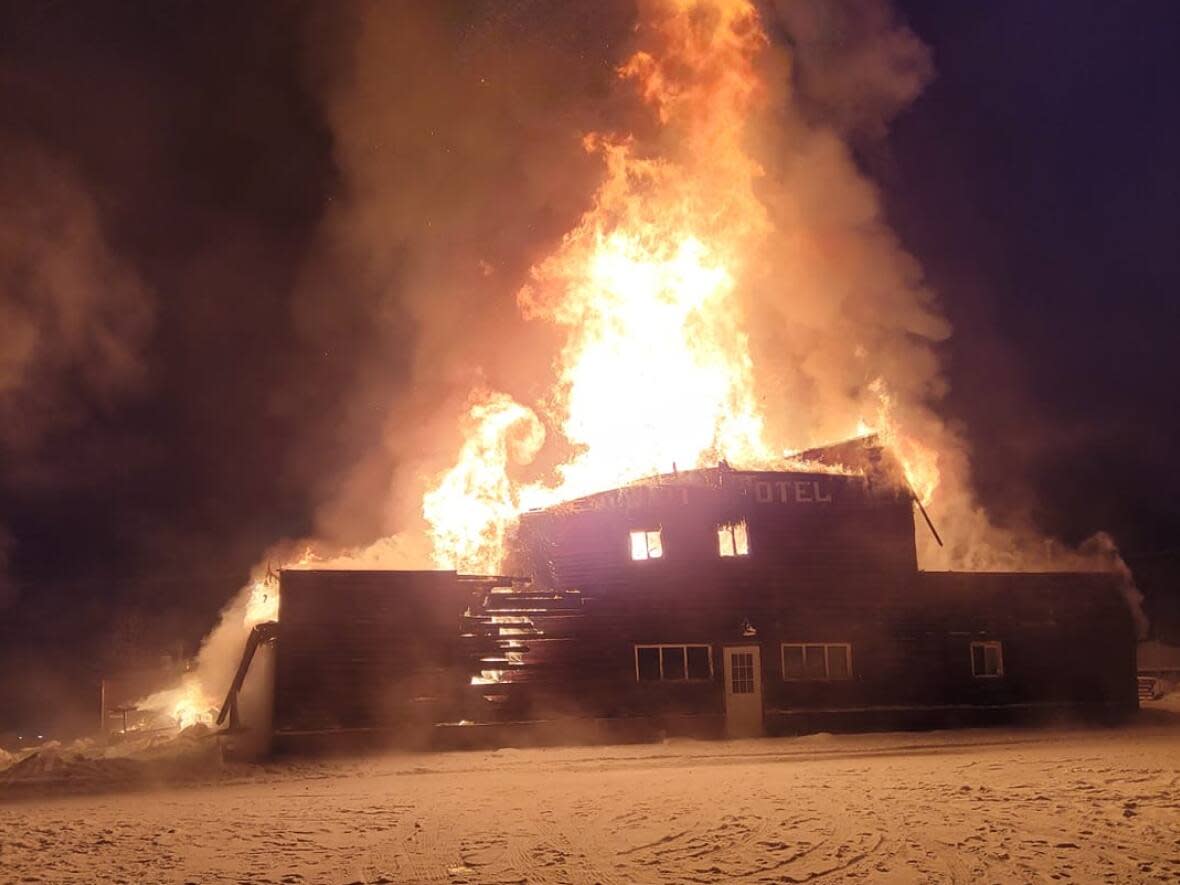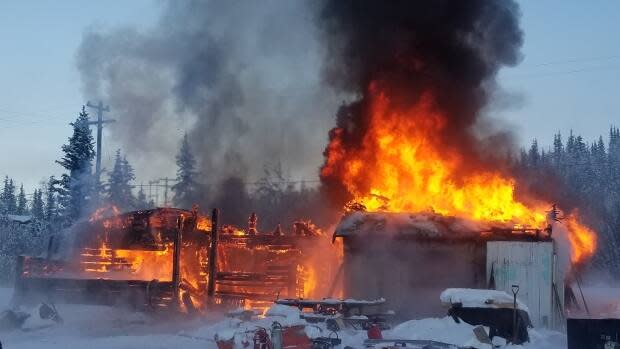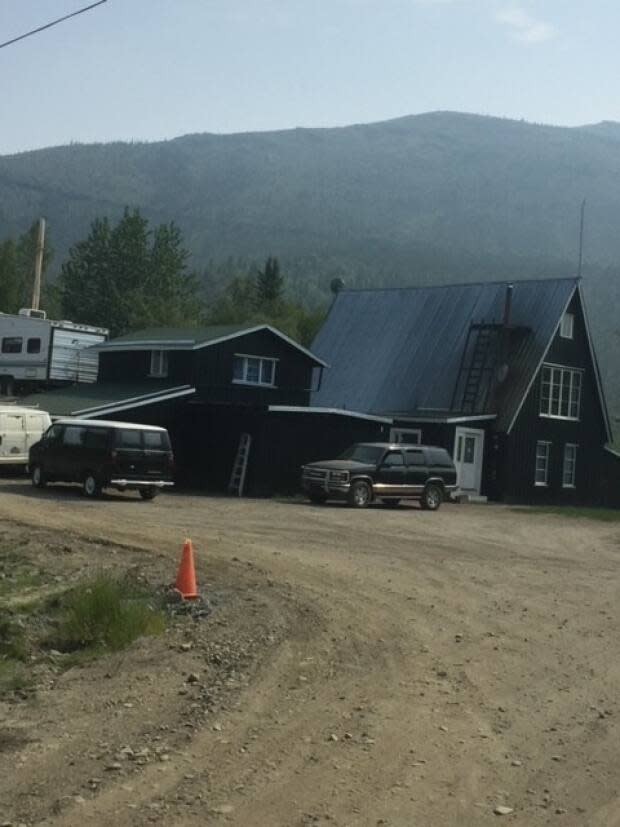Review of Yukon fire services calls for 'fire protection in a box' for remote communities

Small and remote Yukon communities like Keno City could benefit from a "neighbour-to-neighbour" fire control plan, according to a recent review of Yukon's fire services.
A 152-page report was completed by Response Specialties Consulting firm, under contract to the Yukon government's Department of Community Services. The firm and the territory held a technical briefing on Thursday about the report.
The report says some of Yukon's legislation related to fire services is dated and not consistent with current practice. The Occupational Health and Safety Regulation as well as the Fire Prevention Act need to be reviewed and updated, it says.
The new report comes after a group representing residents of Keno City, Yukon, called for an independent public inquiry into the state of fire protection last December, after a fire destroyed the community's beloved hotel.
Keno City is home to a few dozen residents and the Keno City Hotel was an iconic landmark in the former mining boomtown.
At the time, an open letter was addressed to the premier, ministers and the fire marshal, by the Keno City residents' group. It said a fire truck was removed from the community without notice in April 2019. The community is described in the letter as an old wooden historical community with no volunteer fire department, and it said residents had to contact a volunteer force from Mayo, Yukon, about an hour's drive away, to respond to the hotel fire.
The letter also said a large reserve water tank in Keno had been earlier removed by the territory's Department of Community Services. The night of the fire, the building housing the water truck and personal protective equipment for fire fighters was locked. The keys had previously been taken away from the residents, the letter said.

'Fire protection in a box'
Among the 104 recommendations from the new report, one of the top priorities according to Don Jolley, principal and founder at Response Specialties Consulting, is implementing a "fire protection in a box" concept. He said it could help the territory's smallest communities to have "basic capability" to limit fire spread in the event of structure fire.
The idea, the report says, is to "provide small remote communities with the tools internally to provide neighbour-to-neighbour assistance in the event of fire when there is no capacity to staff a volunteer fire department."
The report says it's not intended to be a formal organization, nor should it be considered a replacement for a fire department if one can be supported.
Jolley said the concept is to provide a set of equipment, such as hoses, portable pumps, shovels, axes, nozzles, and other items either in a container or on the back of a pickup truck, for example, a surplus truck from the government.
The community would then own it, and its maintenance would be the community's responsibility. It would not be up to the Yukon government to fix or replace items, he said.
"There would be no formal training program. Nothing associated with it," he said.
"It is not to replace the phone call for 911 or for help to come from a neighbouring community. It is simply to provide them with something better than running over there with their little kitchen fire extinguisher or their, you know, three-quarter-inch garden hose."

The report says this approach, already being used in Alaska and in "a similar fashion" by some First Nations in B.C., "is perfectly suited for deployment in communities such as Keno with small population bases that cannot support a legitimate fire department."
"I think it could be very effective in Yukon in the smaller communities such as Keno and others that are just not capable of maintaining a fire department just simply because of lack of population to support the volunteers needed," Jolley said.
While Jolley said there's still a lot of logistical work to do in terms of how it would be applied, he said it's "an important step forward" for communities that need fire protection.
Roger Chabot, a Keno resident, said he likes the idea of getting the tools to take care of fires, especially since the residents there no longer have access to the fire engine that was once in place. His own home is among the many wooden structures on town.
"I do have something to protect," he said. "There's a bunch of really good houses around here."

It also makes sense for residents to be able to put out fires themselves, he said, since the nearest community, Mayo, is about 60 kilometres away along "the worst road," some areas of which he said you have to drive about 10 kilometres per hour.
A road map
Damien Burns, Yukon's assistant deputy minister of protective services, says the report provides a road map for improving services.
"It's very exciting for me that there there could exist this possibility of a [fire protection] solution that a community can put together for themselves with their own local autonomy," he said.
Burns also says his department will undertake some of the short-term recommendations right away, like recruiting volunteer firefighters in communities that have fire departments.
"If we are able to engage in communities and find that energy that we need to deliver these volunteer fire services, Yukon will be without a doubt a national leader in rural fire protection," he said.
The review also says Yukon needs to improve and increase the engagement of First Nations and fire protection.


